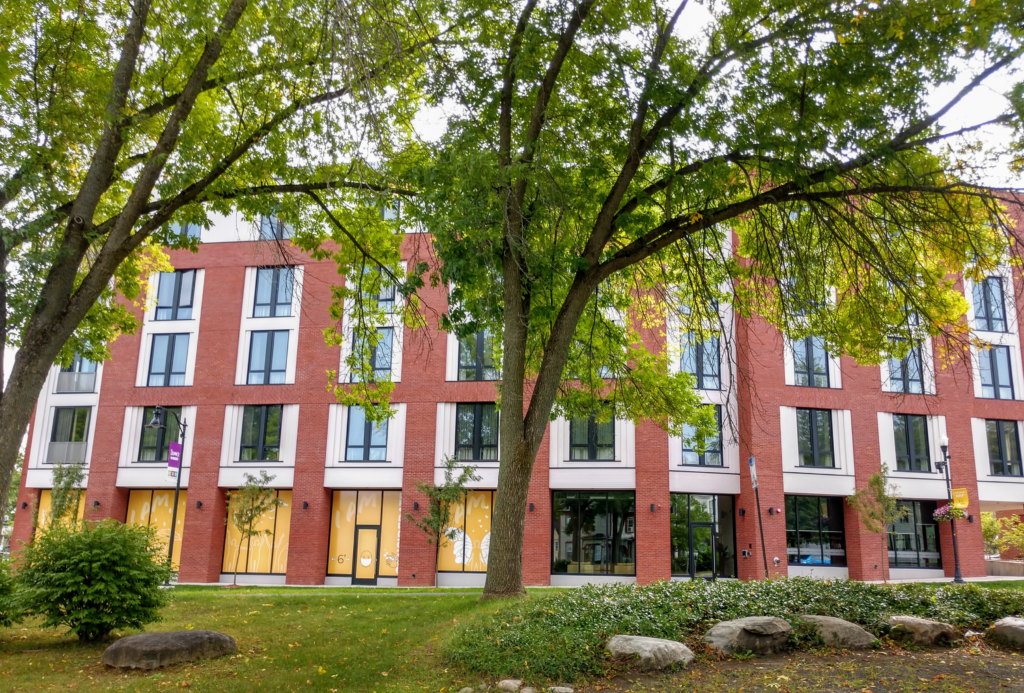Letter: Broad Community Participation And Inclusion of Diverse Voices In 40R Decision Will Benefit Everyone

Following Wednesday’s public forum on Smart Growth 40R overlay zoning, I am trying to think of more powerful and proactive ways that we, the residents of Amherst, can collectively have a meaningful voice in the planning and execution of public policy that affects all of us. The benefit of broad participation and inclusion of a diversity of voices will benefit everyone, even Planning Board Chair Jack Jemsek, and Councilors Steven Schreiber, George Ryan who continue to diminish or dismiss public input in their own public pronouncements. They fail to see that inclusion of a broader range of voices will lead to better outcomes. Jemsek’s comments critical of public opinion at Wednesday’s forum were an affirmation of the point that I was trying to make. I was not suggesting that the Planning Board is populated by incompetent individuals — only that it is not populated by a representative group of Amherst citizens.
We would not have Kendrick Place or 1 East Pleasant Street in their current form if a fair interpretation of existing by-laws had been followed.
And while I did not say this, I would add that the Planning Board is populated by a select group of like-minded people who would be unlikely to represent my views if they are called to adjudicate a dispute over whether or not 40R guidelines are being followed in any particular development. We would not have Kendrick Place or 1 East Pleasant Street in their current form if a fair interpretation of existing by-laws had been followed.
I am not here to fight or criticize, I am here to insist on democracy — the inclusion of all voices in reasonable measure. But again and again, those in local government manipulate the system to disenfranchise large segments of people so their agenda (arrogantly perceived as superior) can be implemented. I would hope that if I were in power I would not exclude the voice of Jack Jemsek.
What I see in the current situation in town is a poverty of good ideas for dealing with housing issues, for cultivating a culture of creative development that not only preserves our charm and character but enhances it. We can do better than the Planning Board or the well paid consultants that John Hornick praised for negotiating an Amherst minefield. The minefield exists because many of our voices have been buried. Hornik asks US to compromise. Why does he not ask THEM to compromise? If all voices are included in reasonable measure I will be the first to compromise. But if I am systematically excluded, then I start to think that the only option I have is to try to “throw a wrench” into a machine that ignores my opinions and interests and refuses to include my voice in policy formation.
Politics means people — it is a human endeavor. Again and again we treat the building (school, library, apartment) as a goal so important that we dismiss the importance of unity, community, and inclusion. So we fight, we get angry, we feel insulted, and we all go home unhappy. Or we choose not to listen, because it is too painful and unpleasant to consider that we have behaved poorly toward our friends and fellow citizens. We anesthetize ourselves to our human feelings in the name of “getting things done.” Whereas, if we chose to work together and listen with open and flexible minds, we would end up getting more done in a shorter time frame. Long ago we would have had the school we want, we would already have a renovated library, and we would have a much larger stock of affordable and middle income housing that better reflects our design preferences and enhances the architectural character of our town.
Robert Greeney
Robert Greeney is a 26-year resident of Amherst, Professor of Physics at Holyoke Community College, and an avid amateur potter, poet, painter, and photographer.
